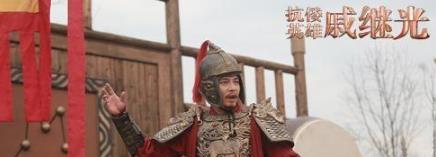What failed in the "Hunhe Campaign" was the army trained by the Qi family army training method, not the Qi family army in the true sense, so it cannot be said that the Qi family army was completely destroyed in the "Hun River Battle".
1. This Qi family army is no longer the Qi family army
We can know from historical records that the Qi family army was named after Qi Jiguang. In the thirty-eighth year of Jiajing (1559), Qi Jiguang recruited nearly 4,000 peasants and miners in Yiwu to suppress the Wukou. Later, through strict military discipline, professional training level, and the most advanced equipment in East Asia, it created a prestige, known as the "Qi Family Army".
After that, this army swept through Zhejiang, Fujian, and Guangdong, and lasted for more than ten years, fighting eighty battles, and was invincible, eradicating the plague of the Wokou for many years. In the first year of Longqing, Qi Jiguang himself led 3,000 of his old subordinates to transfer to the Beijing Division, supervise the Jiliao, and train 30,000 cavalry battalions. In the second year of Longqing, he completely annihilated Duoyan 30,000 iron horses, captured Dong Fox's nephew Chang Ang, Dong Fox only spared himself, forcing Dong Fox to detain him; Wanli three years; Long Bald Shuai Wuliang Ha Iron rode 50,000 into Kou, Qi Jiguang led 8,000 horses out of the plug to copy, completely annihilated 50,000 Mongol troops, and captured Chang Bald alive.

At the end of the Ming Dynasty, the "Qi Family Army" who embarked on the battlefield of Liaodong to resist the expiration of the Eight Banners would be the veteran general Chen Ce and the deputy general Tong Zhongxuan, who was nearly seventy years old. The only one associated with the Qi family army is Qi Jiguang's nephew Qi Jin, but he only leads 300 relatives trained according to the Qi family army training methods. The "Qi Family Army" on the liaodong battlefield now has little to do with Qi Jiguang, and its combat effectiveness is far from what the real Qi family army wanted to go during the anti-Japanese war.
It can be seen from the leaders of both and their combat effectiveness. The Qi family army that finally perished was no longer the earlier Qi family army, so the real Qi family army was not destroyed in the "Battle of HunHe".
2. The enemies faced by the two are different
The initial goal of the Qi family army formed by Qi Jiguang was to eliminate the plague of the Wukou along the Daming coast, and relied on the strong combat strength of the Qi family army to achieve the goal. Later, due to the invasion of the frontier by the Mongols, they went north, and once again trained a team that could fight a hard battle with the Qi family army of 3,000 people. In his lifetime, Qi Jiguang had never really fought against the Manchu Qing Eight Banners Army.
And when it came to the "Battle of hunhe", the "Qi family army" was faced with the Eight Banners of the Manchu Qing Dynasty, which was said to be invincible and very cattle. The tactics of the Eight Banners of the Full Period are completely different from those of the Mongols and the Wokou, who can ride and shoot and dismount.
3. The supporting force behind the two is different
During Qi Jiguang's journey from the southeast to Jizhou in the northern town of Jizhou, Hu Zongxian, Tan Lun, and Liang Menglong, as well as the ruling ministers Xu Jie, Gao Gong, and Zhang Juzheng, were very supportive of his work. In particular, Zhang Juzheng often transferred those officials who were opposed, or even dismissed them, so Qi Jiguang was able to play his best in the north of the town for a long time.
As the old saying goes, "Soldiers and horses go first without moving grain and grass." A fully supported imperial court was one of the important reasons why Qi Jiguang was able to lead his army to victory.
Shi Zai: The tens of thousands of Mongol starving people taken in by the new Liaodong Jingluo Yuan Yingtai woman Zhiren became the internal response of the Later Jin army, and the Later Jin army attacked Shenyang.
The "Qi Family Army" in the "Hunhe Campaign" has no reinforcements and has enemies inside, and even the most powerful army cannot exert real combat strength, and failure is an inevitable end.